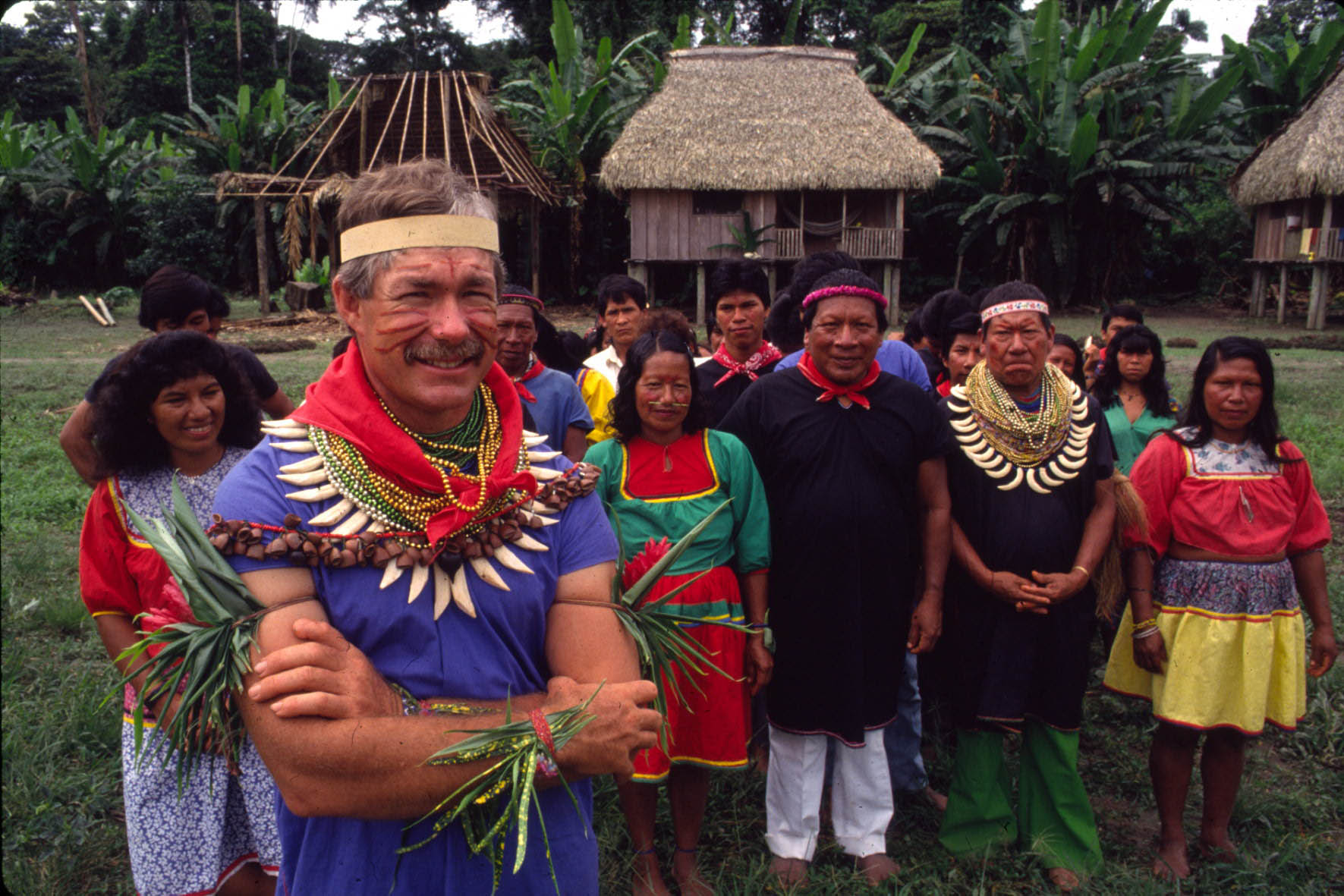Randy Borman, the son of Anglo-American missionaries who was born and raised among an Amazonian tribe known as the Cofán people, will speak in the Chapel Feb. 19 at 4 p.m. His lecture, “An Amazon Contribution to Global Survival,” is open free to the public.
The lecture is part of the 2015 Global Georgia Initiative, an annual speaker series sponsored by the Jane and Harry Willson Center for Humanities and Arts. It is presented in partnership with the Latin American and Caribbean Studies Institute and the Willson Center Research Cluster on Indigenous Foods and Fibers.
Borman, now the tribe’s chief of territories, also will take part in the geography department colloquium “Disappearing Mountains of the Amazon: Land Grabs and Food Security in Cofán Territory” Feb. 20 at 3:30 p.m. in Room 200-C of the geography-geology building.
The Cofán, whose territory covers parts of Ecuador and Colombia, were on the verge of disappearance 40 years ago. As a result of unchecked incursion by oil companies and related development interests, the Cofán had seen a dramatic depletion and compromising of resources that posed a grave threat to their centuries-old way of life. Beginning in the mid-1970s, the Cofán began to fight back, successfully lobbying the Ecuadorian government for more control of their lands and bringing new oil exploration to a halt by the 1990s. Borman led the tribe’s resistance and reinvention.
Though raised in the tribal Cofán rainforest community, Borman was educated in modern, urban schools in Ecuador and attended college in the U.S. He then returned to Ecuador, where the encroachment on Cofán lands had reached crisis proportions. He learned Spanish in order to communicate with the Ecuadorian government on behalf of the Cofán, who spoke only their own indigenous language. This began a decades-long process of negotiation for conservation and the return of land rights that now is seen as an innovative model for protecting threatened ecosystems.
The Global Georgia Initiative is a series of lectures and conversations whose goal is to present global problems in local context by addressing pressing contemporary questions, including the economy, society and the environment, with a focus on how the arts and humanities can intervene.


